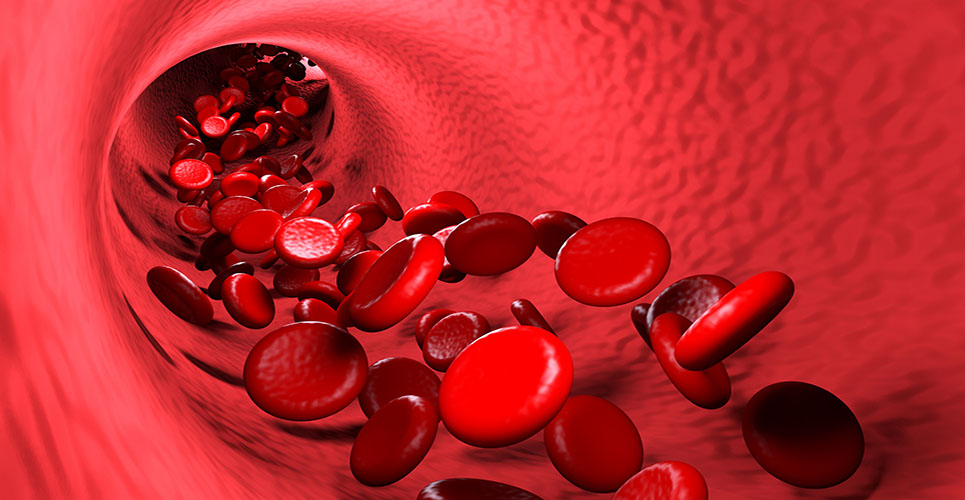Janssen-Cilag International NV announced it has submitted a new Marketing Authorisation Application to the European Medicines Agency (EMA) for daratumumab, an investigational, human anti-CD38 monoclonal antibody, for the treatment of patients with relapsed and refractory multiple myeloma.
Janssen-Cilag International NV announced it has submitted a new Marketing Authorisation Application to the European Medicines Agency (EMA) for daratumumab, an investigational, human anti-CD38 monoclonal antibody, for the treatment of patients with relapsed and refractory multiple myeloma.
Multiple myeloma is an incurable blood cancer that starts in the bone marrow and is characterised by excess growth and survival of malignant plasma cells. (1) Patients who are refractory to both proteasome inhibitors (PIs) or immunomodulatory agents (IMiDs) have a poor prognosis, with an estimated median overall survival of nine months. (2)
Daratumumab works by binding to CD38, a signalling molecule found on the surface of multiple myeloma cells. (3,4,5,6) In doing so, daratumumab triggers the patient’s own immune system to attack the cancer cells, resulting in rapid tumour cell death through multiple immune-mediated and other mechanisms of action. (7)
The regulatory submission for daratumumab is now pending validation by the EMA and is based on data from the Phase II MMY2002 (SIRIUS) monotherapy study, which was presented at the 51st Annual Meeting of the American Society of Clinical Oncology (ASCO), (8) data from the Phase I/II GEN501 monotherapy study, which was recently published in The New England Journal of Medicine, (9) and data from three supportive studies.
For MMY2002, the primary efficacy endpoint was overall response rate (ORR). Ninety-five percent of patients in the study were double refractory to a PI and IMiD. Patients received three or more lines of prior therapy (median of five), including a PI and an IMiD. Daratumumab achieved an ORR of 29% in the group of patients who received 16 mg/kg (n=106) as a single-agent therapy, with a well-tolerated safety profile. (8)
The ORR outcomes of MMY2002 are similar to the ORR data in the Phase I/II GEN501 study, in which safety was the primary endpoint. Patients enrolled in GEN501 received two or more lines of prior therapy (median four), including a PI and an IMiD, and 64% were refractory to both PIs and IMiDs. In this study, daratumumab demonstrated a tolerable safety profile and achieved an ORR of 36% (11 partial responses, two very good partial responses and two complete responses) in the group of patients who received 16mg/kg, with responses improving over time. Median progression-free survival was 5.6 months (95% CI: 4.2, 8.1) and 65% (95% CI: 28, 68) of responders remained in remission at 12 months. The OS rate at 12 months was 77% (95% CI: 58, 88). (9)
“For more than a decade Janssen has focused on addressing unmet needs in multiple myeloma which, despite important advances, still remains an incurable cancer,” said Jane Griffiths, Company Group Chairman, Janssen Europe, Middle East and Africa. “Through our continued commitment to research into new therapies and innovative mechanisms, we are encouraged to see the depth of therapeutic response with daratumumab. This is particularly promising for relapsed and refractory patients who have a poor prognosis and may already have exhausted all existing treatment options. We look forward to working with the EMA to make daratumumab available for people with multiple myeloma.”
In July 2013 daratumumab was granted Orphan Drug Status by the EMA for the treatment of plasma cell myeloma. (10) Furthermore, this new EMA submission follows the acceptance for Priority Review of the Biologics License Application for daratumumab with the US FDA on September 4, 2015.
In August 2012, Janssen Biotech, Inc. and Genmab entered an agreement, which granted Janssen an exclusive worldwide license to develop, manufacture, and commercialise daratumumab. Janssen is currently the sponsor of all but one study globally.
References:
- American Society of Clinical Oncology. Multiple myeloma: overview. Available at: http://www.cancer.net/cancer-types/multiple-myeloma/overview. Last accessed 18 May 2015.
- Kumar SK et al. Risk of progression and survival in multiple myeloma relapsing after therapy with IMiDs and bortezomib: a multicenter international myeloma working group study. Leukemia 2012;26(1):149–57.
- Danylesko I et al. Monoclonal antibody-based immunotherapy for multiple myeloma. Immunotherapy 2012;4:919–38.
- Ocio EM et al. New drugs and novel mechanisms of action in multiple myeloma in 2013: a report from the International Myeloma Working Group (IMWG). Leukemia 2014;28:525–42.
- Lin P et al. Flow cytometric immunophenotypic analysis of 306 cases of multiple myeloma. Am J Clin Pathol 2004;121:482–8.
- Fedele G et al. CD38 ligation in peripheral blood mononuclear cells of myeloma patients induces release of protumorigenic IL-6 and impaired secretion of IFNgamma cytokines and proliferation. Mediat Inflamm 2013;2013:564687.
- de Weers M et al. Daratumumab, a novel therapeutic human CD38 monoclonal antibody, induces killing of multiple myeloma and other hematological tumors. J Immunol 2011;186:1840–8.
- Lonial S et al. Phase 2 Study of daratumumab Monotherapy in Patients with ≥3 Lines of Prior Therapy or Double Refractory Multiple Myeloma (MM). J Clin Oncol 2015;33(Suppl.):abstract LBA 8512.
- Lokhorst HM et al. Targeting CD38 with Daratumumab Monotherapy in Multiple Myeloma. N Engl J Med 2015;Aug:1–13.
- European Medicines Agency. Public Summary of Orphan Drug Designations – EU/3/13/1153. Available at: http://www.ema.europa.eu/ema/index.jsp?curl=pages/medicines/human/orphans/2013/08/human_orphan_001232.jsp&mid=WC0b01ac058001d12b. Last accessed 12 May 2015.

